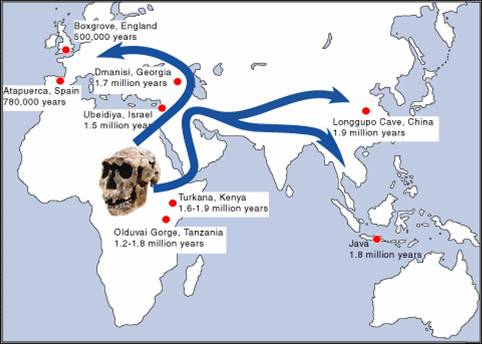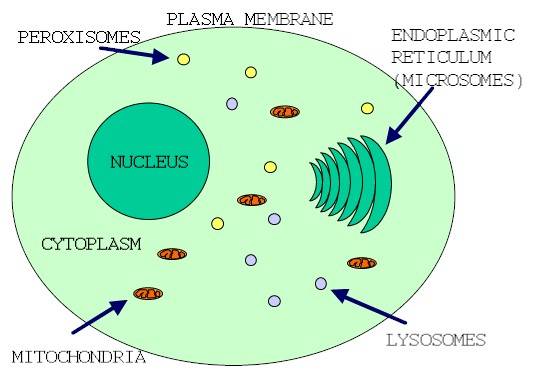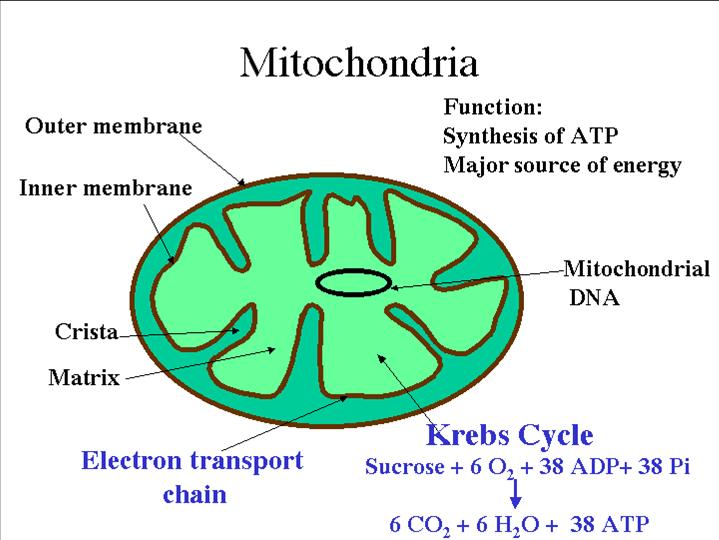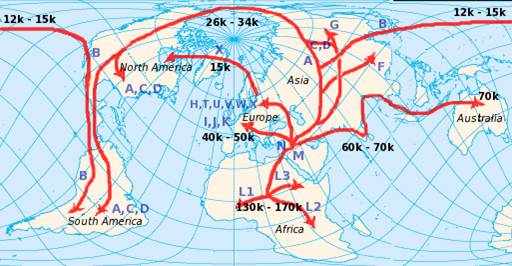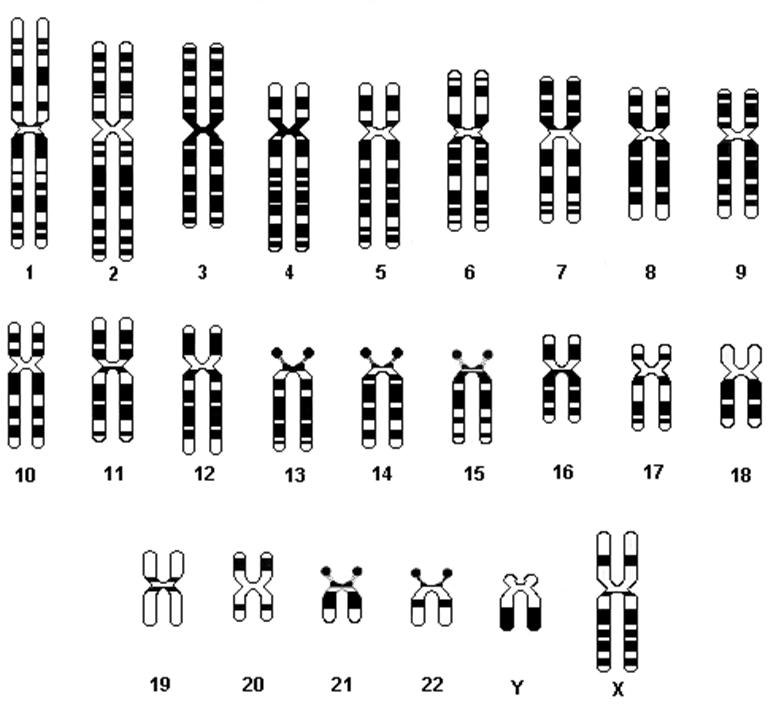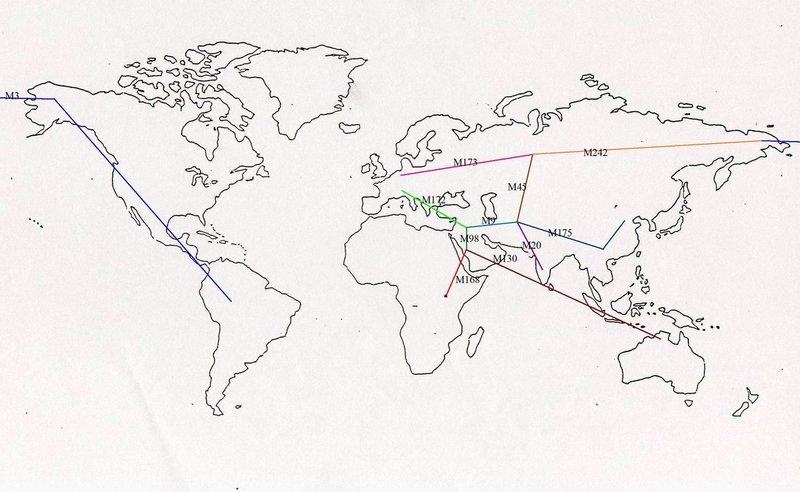Bible Study: Out-Of-Africa Hypothesis (G.G.)
| This is an opinion article from a user of WikiChristian. |
By Graham Llewellyn Grove, August 2005, Original article
The Origin of Mankind
What is your opinion on the origin of mankind and the stories of Genesis?
What about Abraham?
What about Noah?
What are some of the different viewpoints of different Christians?
Multi-regional hypothesis
This has been the traditional scientific teaching since the time of Darwin
It states that homo erectus evolved in Africa millions of years ago, and spread throughout the world
Homo erectus evolved independently into different subspecies in different regions millions of years ago and these subspecies independently evolved into humans of different races today
Out of Africa Hypothesis
This is the current generally accepted theory of human evolution and is in opposition to the once-accepted multi-regional hypothesis
In 1987 a team of scientists examining mitochondrial DNA from women around the world were surprised to discover that analysis suggested that every woman in the world can trace their ancestry back to one single woman, probably about 150,000 years ago, and almost certainly from Africa
This common ancestor of all humans has been named “Mitochondrial Eve”
Cells and DNA
Every human cell contains 46 chromosomes containing DNA (which consists of genes) from both parents – mother and father
The DNA sits in the nucleus of the cell
Mitochondria
Mitochondria are components of cells that are involved in energy production
Interestingly, mitochondria also contain small amounts of DNA that is not part of the normal 46 chromosomes of DNA
All your mitochondria are inherited only from your mother (none come from your father)
So, my mitochondrial DNA is the same as my mum’s. Her mitochondrial DNA is the same as her mum’s etc. So my mitochondrial DNA is the same as my great-great-great-great-great-great grandmother’s and so on; my mitochondrial DNA is also therefore the same as my sister’s or brother’s or mum’s sister etc.
Well, not quite. Every few generations a mutation occurs in the DNA in the mitochondria making it ever so slightly different – so my mitochondrial DNA might be 1 mutation different from my great-great-great grandmother’s
Mitochondrial Eve
Using this understanding, mitochondrial DNA of women around the world has been examined – and surprisingly it has been found to be virtually identifical in every woman – using some mathematics and statistics it has been suggested that every single woman has a common ancestral mother who lived about 150,000 years ago
Looking at the amount of variation of mitochondrial DNA in different regions, it has been determined that this woman must have come from Africa – she is “Mitochondrial Eve”
Interestingly, there are 3 main sub-groups of clan ancestral mothers – L1, L2, L3 – all three are in Africa; only L3 is out of Africa – suggesting that an L3 woman must have migrated out of Africa and populated the rest of the world
Y chromosome Adam
After determining the existing of mitochondondrial Eve, it was realized the same thing could be done for a man
Each human cell has 46 chromosomes in the nucleus
Each woman has 2 X chromosomes: 1 comes from her father, the other comes from her mother
Each man has 1 X chromosome (that comes from his mother) and 1 Y chromosome (that comes from his father)
So, I have the same Y chromosome as my father; he has the same Y chromsome as his father and so on; so I have the same Y chromosome as my great-great-great-great-great grandfather; I also have the same Y chromosome as my brothers and father’s brothers
Well, not quite – every so often a mutation occurs in the DNA of the Y chromosome – so my Y chromosome may be one mutation different from my great-great grandfathers Y chromosome
Using this understanding, Y chromosomes of men around the world have been examined – and again, it has been found to be extremely similar in every man - using some mathematics and statistics it has been suggested that every single man has a common ancestral father who lived about 70,000 years ago
Looking at the amount of variation of Y chromosomes in different regions of the world, it has been determined that this man must have come from Africa – he is “Y chromosome Adam”
M168 – the first humans leave Africa
M130 – the first migration away from Africa about 50,000 years ago, towards Australia with the arrival of Aboriginals in Australia
M98 – the second migration away from Africa about 45,000 years ago, where humans spread out to the rest of the world, including Western Europe in the M173 migration of about 30,000 years ago
Questions that this raises?
How could the mitochondrial Eve be 150,000 years old and the Y chromosome Adam by 70,000 years old?
The current scientific theory is that of a “bottle-neck” catastrophe such as a huge volcanic eruption that caused the earth’s temperature to drop so that very few humans survived – perhaps only a few women who had children (so that a new mitochondrial Eve did not appear), and 1 man who had sons (so that a new Y chromosome Adam appeared)
Stories from Genesis
The above study has described the current accepted scientific theory about the evolution of mankind and his migration throughout the world.
What does Genesis say about the creation of mankind and a "bottle-neck" catastrophe?
Genesis 2: 4 – 24 - the story of the creation of Adam and Eve
Genesis 6 - 7 - the story of the Flood
Return to Creation science and evolution
Note to users: The wiki is currently operating in safe mode. Editing is limited to users with certain privileges in order to deal with spam. You can create a new user account, and confirm your email ID in order to obtain ability to edit pages. Learn how to be an editor or sysop at WikiChristian.
- Sister projects: WikiMD.com Wellness Encyclopedia & Directory
- Sponsors: WikiChristian is supported by W8MD's medical weight loss and sleep centers.
